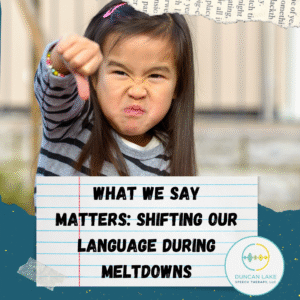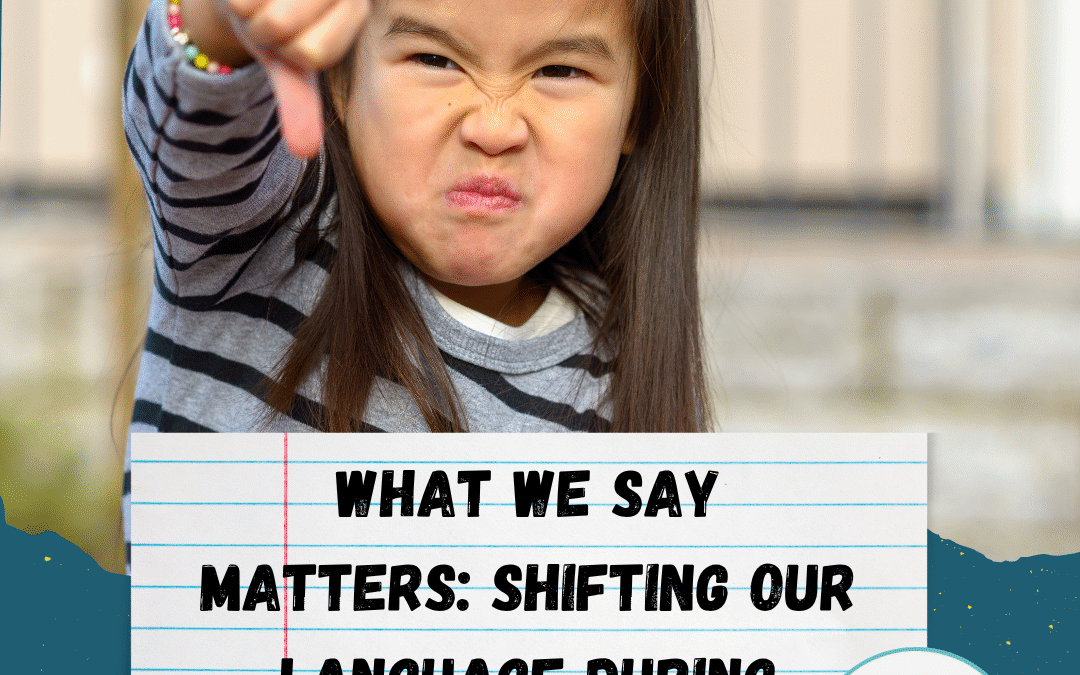by Duncan Lake Speech Therapy
When a child is overwhelmed and crying, yelling, or melting down, it’s natural to want to make it stop. As adults, our instincts often lead us to say things like “Calm down!” or “You’re fine!” in an attempt to soothe or regain control of the situation. However, the words we use in those moments matter, and sometimes, they’re doing the opposite of what we intend.
At Duncan Lake Speech Therapy, we talk a lot about connection, regulation, and the power of language. And one of the most powerful things we can do during a child’s meltdown is shift how we speak.

Meltdowns aren’t misbehavior
Meltdowns happen when a child’s nervous system is overwhelmed. Their brain is flooded, their body is in fight-or-flight mode, and logic isn’t available to them in that moment. What they need is not correction or perspective. They need support, safety, and co-regulation.
Why our language matters
Telling a child to “calm down” or “get over it” may feel like a quick fix, but those phrases can feel dismissive or invalidating. They communicate that big emotions aren’t welcome, or worse, that those emotions are wrong. Over time, this can chip away at a child’s trust, emotional resilience, and self-awareness.
Instead, when we slow down and use language that centers connection and validation, we show the child: “I see you. I’m here with you. You’re not alone in this.” That’s what helps the brain and body move toward regulation.
A shift that supports growth
This isn’t about being perfect. It’s about being intentional. When we practice using language that acknowledges a child’s emotional experience, even when it’s messy or inconvenient, we’re modeling emotional intelligence and offering the tools they’ll one day use for themselves.
It’s also important to note that this language shift is based in science! According to two different studies (Eisenberg et al. and Katz et al.), telling a child to “calm down,” “stop crying,” or “it’s not a big deal” can have the opposite effect. In fact, it increases shame or confusion, sends a message that emotions are “bad” or need to be shut down, and prevents connection and co-regulation
The goal isn’t to avoid meltdowns altogether (though I think we’d all love that). The goal is to meet kids where they are, with words that help them feel safe, seen, and supported.



Recent Comments